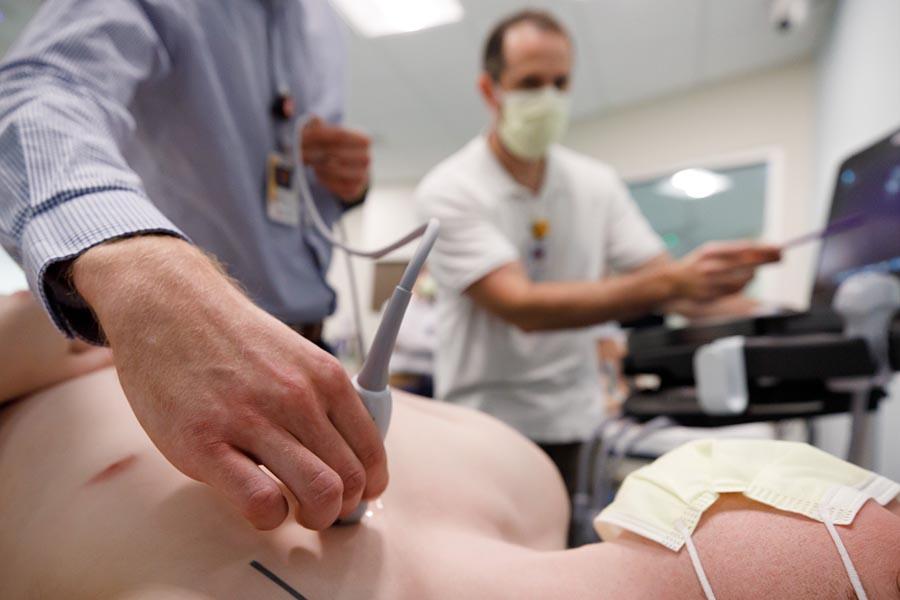Patient Care

Our faculty members care for patients with a wide variety of kidney diseases.
Patients with chronic kidney disease have specialized needs such as management of anemia, nutritional support, calcium, phosphorous and bone metabolism, as well as social support.
As part of Nebraska Medicine's organ transplant program, our faculty members provide pre- and post-kidney transplant care, as well as evaluation of living donors. Faculty members also manage immunosuppression for patients transplanted elsewhere through the Nebraska Medicine Transplant Center.
Outpatient Consultative Nephrology
Our faculty members provide outpatient consultative services through Nebraska Medicine outpatient and outreach clinics. These clinics focus on the diagnosis and management of all diseases affecting the kidney, including acute kidney injury, chronic kidney disease and its complications, refractory hypertension, diabetes mellitus, kidney stones, electrolyte abnormalities, primary glomerular diseases, proteinuria, and autoimmune diseases that affect the kidney such as systemic lupus erythematosis.
Glomerulonephritis
Nebraska Medicine has opened a dedicated glomerulonephritis (GN) clinic under the direction of Prasanth Ravipati, MD, who specializes in the diagnosis and management of glomerular diseases.
Located on the med center’s Omaha campus, the half-day clinic provides weekly slots for patients with such rare and complex diseases that can lead to end-stage kidney disease, other serious morbidity or death.
A complex syndrome encompassing a variety of individual disorders, GN is an inflammation of the glomeruli - small blood vessels in the kidney that help filter your blood and remove excess fluids. If damaged, the kidneys stop working properly, resulting in kidney failure.
Dialysis
Our faculty members oversee the care of patients with chronic kidney disease undergoing various forms of dialysis or renal replacement therapy.
In-center hemodialysis is typically performed three times weekly at a dialysis unit, whereas peritoneal dialysis and home hemodialysis are performed by the patient, typically with a care partner, at home. Click for more information, including dialysis unit locations.